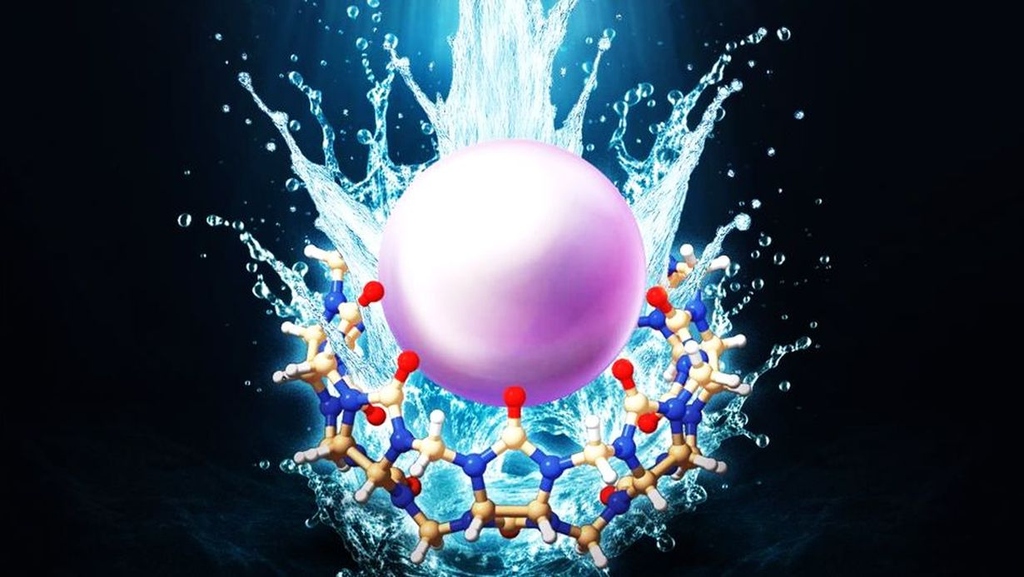
October 14, 2025
Water is everywhere – it covers the major part of Earth, circulates in the human body, and is found even in the smallest molecular clefts. However, what happens if water cannot flow freely, but is enclosed in such structures? Researchers of Karlsruhe Institute of Technology (KIT) and Constructor University in Bremen proved for the first time that enclosed water can influence its surroundings and favors binding between molecules. This discovery could open new paths for the design of drugs and new materials. The researchers report on their findings in the International Edition of the “Angewandte Chemie” journal. (DOI: 10.1002/anie.202505713)
Press Release 071/2025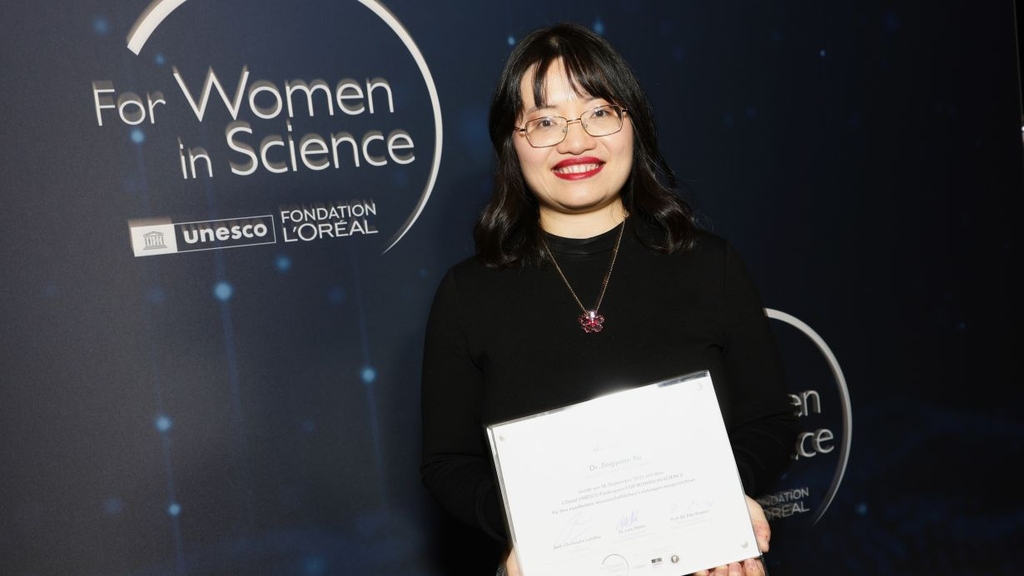
September 19, 2025
At an awards ceremony held on September 18, 2025 in Düsseldorf, Dr. Jingyuan Xu from Karlsruhe Institute of Technology (KIT) was honored with the “For Women in Science” sponsorship award in recognition of her pioneering research into environmentally friendly cooling technologies. Together with three other female scientists from Germany, she received the EUR 25,000 award, which is offered by L’Oréal, the German Commission for UNESCO, and the German Humboldt Network. Since its launch in 1998, the programme’s goal has been to raise the visibility of excellent women in science worldwide.
“This award acknowledges Dr. Xu’s outstanding scientific achievements and her vision for society. With her focus on cooling technologies, she has dedicated her research to a matter that is taken for granted, but has a high societal, economic, and ecologic relevance”, says Professor Dr. Oliver Kraft, KIT’s Vice President Academic Affairs. “The ‘For Women in Science’ award shows how significant the contribution of female scientists to research and technological development is on a worldwide level.”
Press Release 065/2025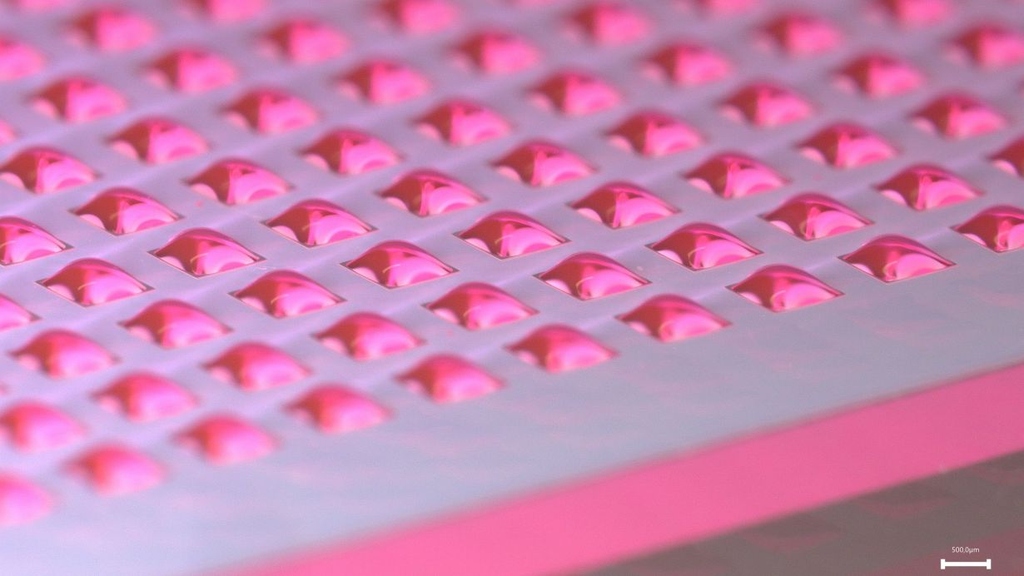
August 21, 2025
Until now, the early phase of drug discovery for the development of new therapeutics has been both cost- and time-intensive. Researchers at KIT (Karlsruhe Institute of Technology) have now developed a platform on which extremely miniaturized nanodroplets with a volume of only 200 nanoliters per droplet – comparable to a grain of sand – and containing only 300 cells per test can be arranged. This platform enables the researchers to synthesize, characterize, and test thousands of therapeutic agents on the same chip, saving time and resources. The researchers report on their findings in the journal “Angewandte Chemie” (DOI: 10.1002/anie.202507586)
Press Release 059/2025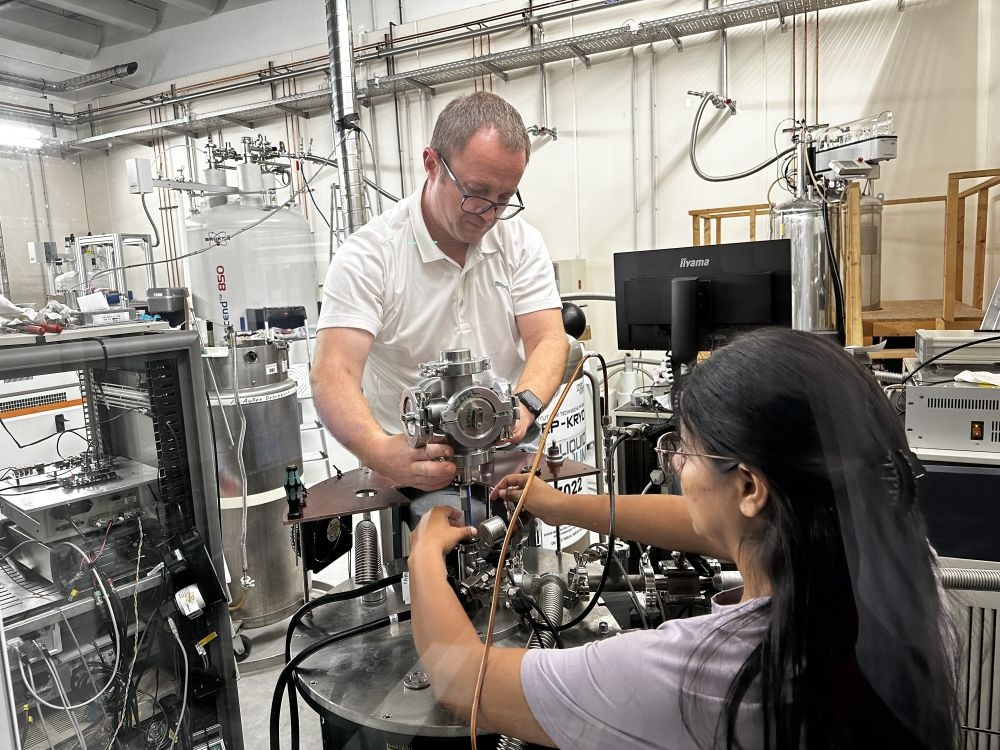
[jho] Nuclear magnetic resonance forms the basis of both nuclear magnetic resonance spectroscopy (NMR spectroscopy), which is used to analyze solids or organic molecules in liquids, and magnetic resonance imaging for medical diagnostic purposes. Researchers at Karlsruhe Institute of Technology (KIT) and Leipzig University have now, for the first time, experimentally demonstrated that extended measurement techniques are possible (Phys. Rev. B 112, L060302 – DOI: https://doi.org/10.1103/h2sn-wvzm).
Although additional resonanceshad been theoretically predicted, they had not been observed due to their minimal effects. “We used a calcium fluoride single crystal as the sample material, in which fluorine atoms are arranged in a cubic lattice,” explains Dr. Benno Meier from Institute of Biological Interfaces 4 at KIT and head of a Helmholtz Young Investigator Group. “The key was that we repeatedly changed the strength of the magnetic field abruptly. This allowed us to discover resonance frequencies far from the Larmor frequency. The experimental results align excellently with theoretical predictions.”
Transferring these findings to electron spin resonance (ESR) spectroscopy, which is used in biophysics and materials science, also promises new applications.
KIT News, August 21, 2025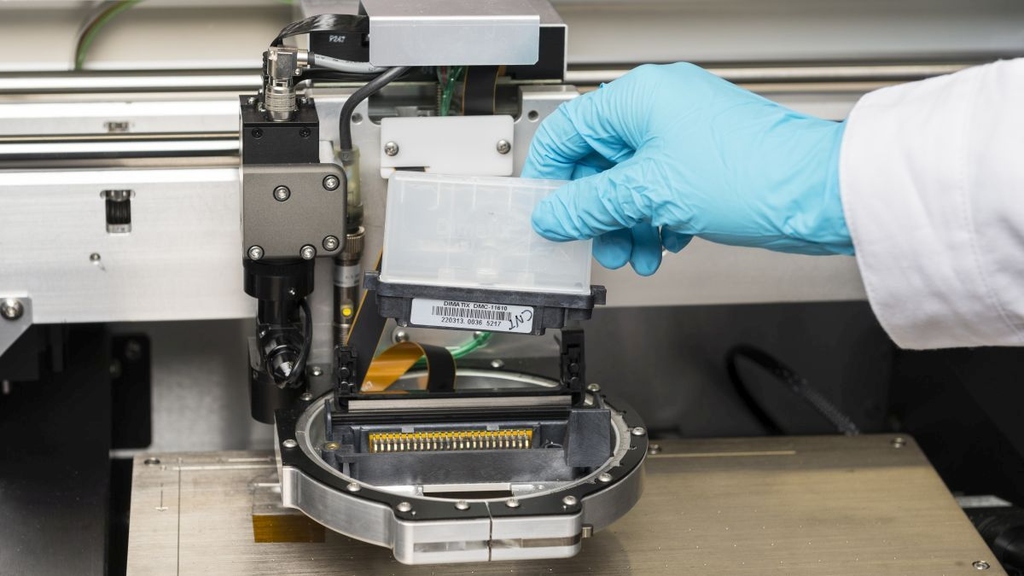
Materials science is a key discipline for numerous forward-looking initiatives, whether in the energy transition, 3D printing, or quantum computing. Since 2019, the MaterialDigital platform, coordinated primarily by Karlsruhe Institute of Technology (KIT), has been advancing the digitalization of materials science with the goal of systematizing and standardizing the management of materials data. Starting in October 2025, the collaborative project funded by the German Federal Ministry of Education, Research and Technology (BMFTR) will enter its third funding phase. “Within the platform project, we will continue to coordinate and carry out key tasks in the areas of ‘workflows’ and ‘IT architecture’, and will operate the platform’s administrative office,” explains Dr. Jörg Schaarschmidt from the Institute of Nanotechnology at KIT and member of the MaterialDigital Management Board.
KIT News, August 19, 2025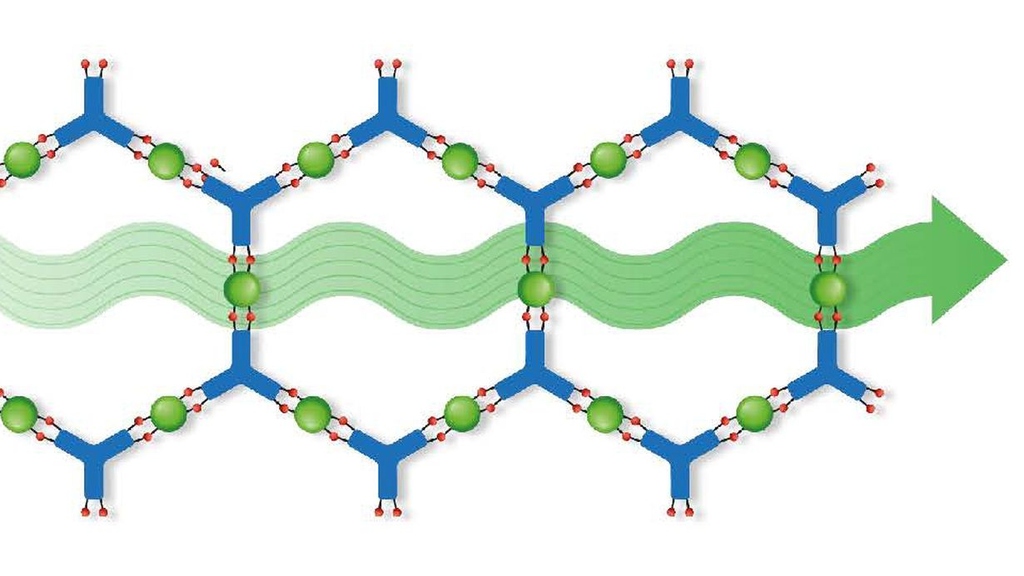
June 06, 2025
Metal-organic frameworks (MOFs) are characterized by high porosity and structural versatility. They have enormous potential, for example for applications in electronics. However, their low electrical conductivity has so far greatly restricted their adoption. Using AI and robot-assisted synthesis in a self-driving laboratory, researchers from Karlsruhe Institute of Technology (KIT), together with colleagues in Germany and Brazil, have now succeeded in producing an MOF thin film that conducts electricity like metals. This opens up new possibilities in electronics and energy storage – from sensors and quantum materials to functional materials. The team reports in the Materials Horizons journal. (DOI: 10.1039/d5mh00813a)
Press Release 045/2025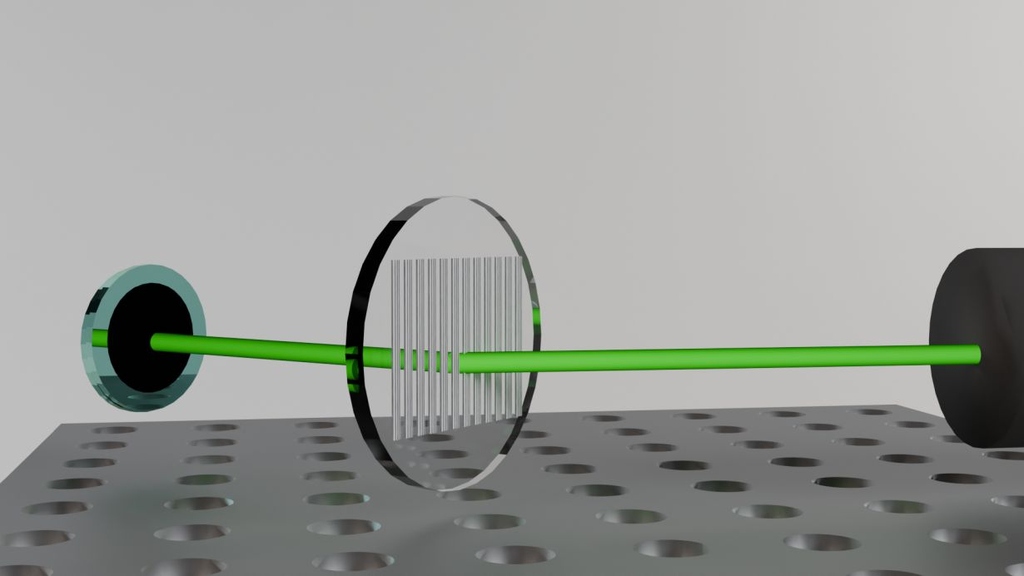
March 03, 2025
Conventional curved lenses, which direct light by refraction in glass or plastic, are often bulky and heavy, offering only limited control of light waves. Metasurfaces, in contrast, are flat and consist of an array of tiny structures known as meta-atoms. Meta-atoms influence light at a subwavelength scale and thus allow for highly precise control of the phase, amplitude, and polarization of light. “Using metasurfaces, we can influence the temporal shift, intensity, and direction of oscillation of light waves in a targeted way,” says Dr. Maryna Leonidivna Meretska, Group Leader at KIT’s Institute of Nanotechnology. “Thanks to its multiplex control capabilities, i.e. the simultaneous and targeted influencing of various parameters, a single metasurface can replace multiple optical components. Thus, the size of the optical system can be reduced without affecting its performance.” Production will also be simpler, “Metasurfaces can be manufactured using advanced lithography and etching technologies from the semiconductor industry, making scalable production is possible,” says Meretska.
Read more about optical Metasurfaces
Press Release 019/2025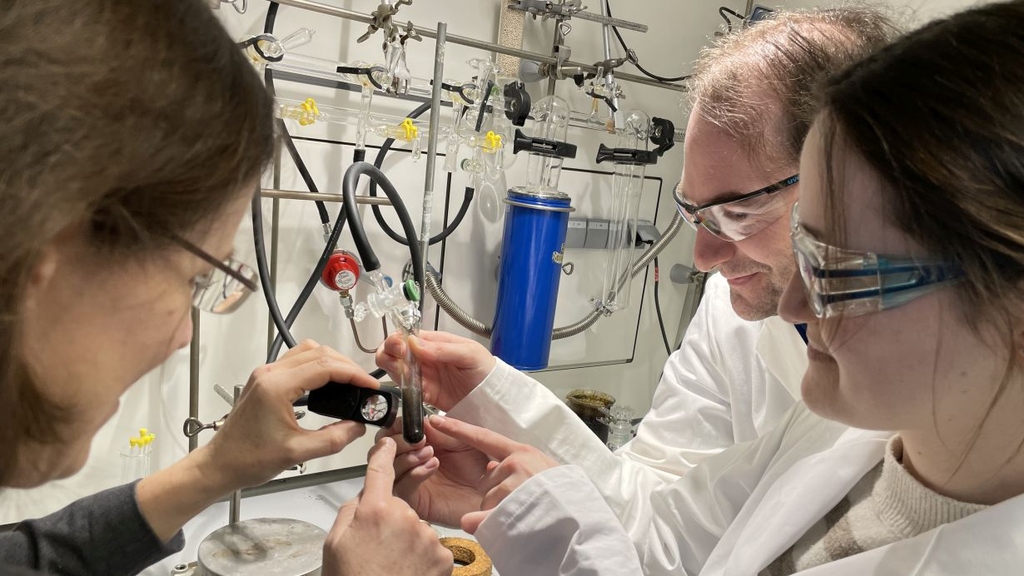
February 05, 2025
Researchers at the Karlsruhe Institute of Technology (KIT) have synthesized a Bi5--ring, a molecule with five bismuth atoms, and stabilized it in a metal complex. Their discovery fills a gap in chemical knowledge and enables future applications in materials research, catalysis, and electronics. Their findings have been published in Nature Chemistry. (DOI: 10.1038/s41557-024-01713-8)
Press Release 006/2025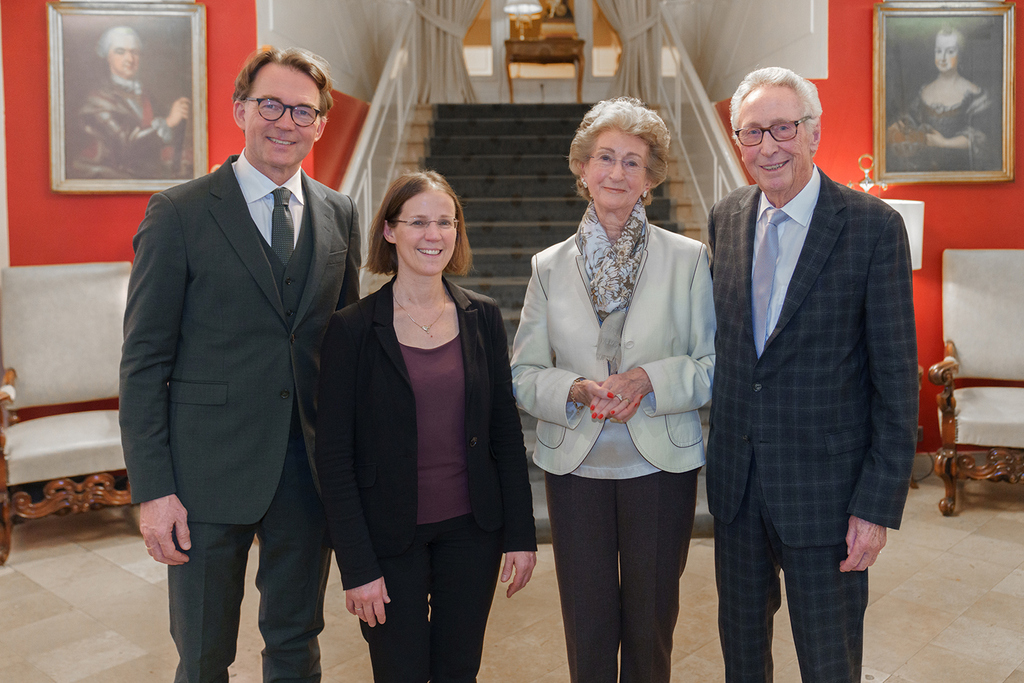
January 27, 2025
Prof. Dr. Stefanie Dehnen und Prof. Dr. Dr. h.c. Matthias H. Tschöp erhalten in diesem Jahr den mit jeweils 150.000 Euro dotierten Wissenschaftspreis der Weinheimer Hector Stiftung.
Stefanie Dehnen lehrt als Professorin für informationsbasiertes Materialdesign und Nanowissenschaften sowie für anorganische Chemie am Karlsruher Institut für Technologie (KIT). In ihrer Grundlagenforschung beschäftigt sie sich seit vielen Jahren mit chemischen Verbindungen. Als Expertin für innovative, anspruchsvolle und zugleich nachhaltige chemische Synthesen kombiniert sie aus den bekannten Elementen bisher unbekannte Verbindungen und Stoffe, die neue Eigenschaften haben. Diese sogenannten Clusterverbindungen gelten als das entscheidende Bindeglied zwischen einzelnen Atomen und nicht atomar definierten Nanopartikeln. Ihre ungewöhnlichen Eigenschaften und Reaktivitäten machen Clusterverbindungen zum Ausgangspunkt für innovative Funktionsmaterialien.
Pressemitteilung idw - Informationsdienst Wissenschaft